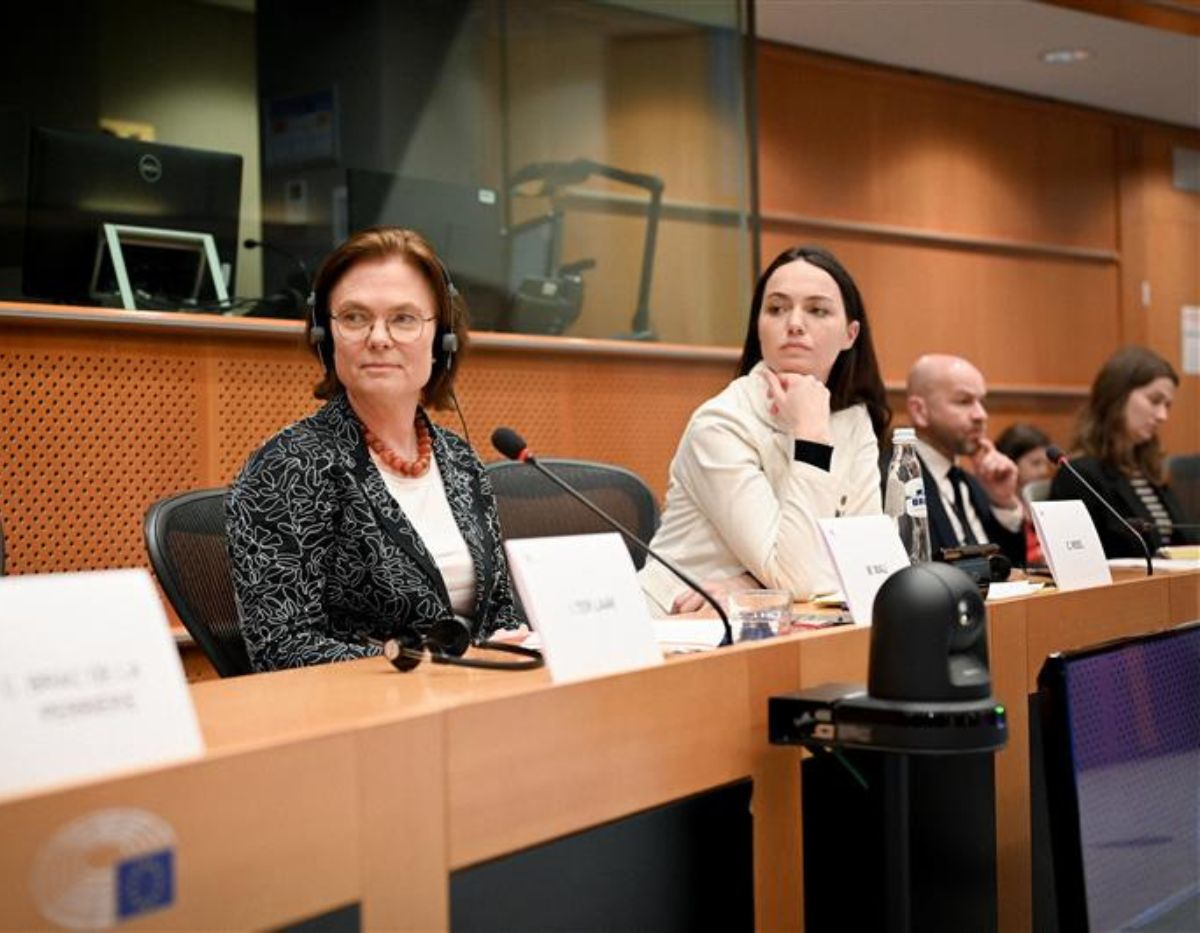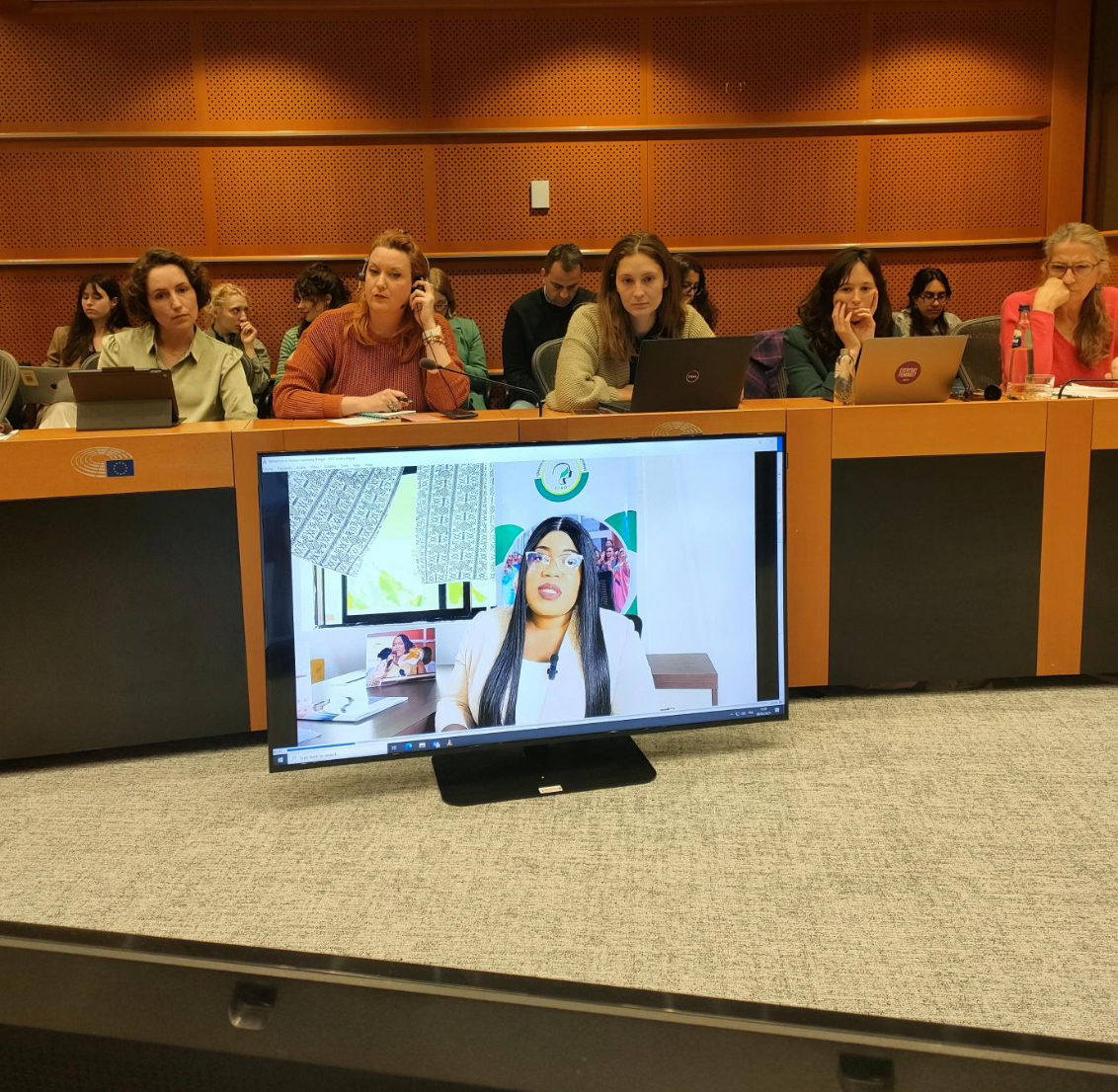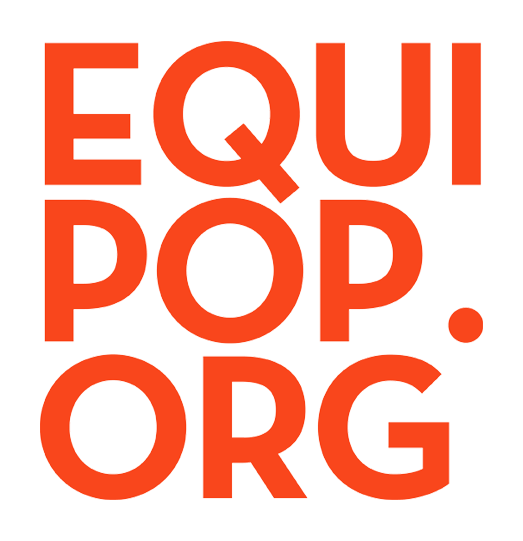
– The Urgent Need for a European Fund for Feminist Organizations
On April 9th, at the European Parliament, Equipop took part in the launch of a strong political call for the creation of a European fund to support feminist organizations. This initiative comes in a global context of crisis in development aid and growing attacks by anti-rights movements. At the heart of this event, organized by MEPs Chloé Ridel and Marit Maij, in partnership with ODI Europe and the Walking the Talk consortium, Equipop mobilized French-speaking feminist actors to make their voices heard by European decision-makers.
“Equality is not just a matter of justice: it’s a matter of security. Shouting our support for oppressed women around the world, in Iran or Afghanistan, is not enough. We must now turn words into action. We must finance their emancipation by supporting the organizations working on the ground.” – Chloé Ridel, Member of the European Parliament
An Alarming International Context
Development aid funding is undergoing a major crisis. The abrupt halt of USAID funding has had devastating effects, putting an end to many programs in support of gender equality. These budget cuts disproportionately affect women and girls, especially in conflict zones and in contexts of democratic backsliding.
In Europe, countries historically committed to development aid—such as the Netherlands, Sweden, Belgium, Germany, France, and the United Kingdom—are also facing budget reductions. Meanwhile, the European Union is increasingly shifting its priorities toward trade and security issues, at the expense of human rights and development. For example, during the 2024 mid-term review of the Multiannual Financial Framework (MFF), the EU reallocated €2 billion from its international cooperation instrument to fund migration management and investments serving its own interests.
At the same time, anti-rights movements—often financed by powers such as the United States, Russia, and even the EU itself—are intensifying their attacks. Their growing presence in power structures and their increasing influence threaten decades of progress in women’s rights. Between 2019 and 2023, nearly €1 billion is estimated to have been reallocated to these reactionary actors, while feminist organizations remain structurally underfunded.
The Need for Feminist Funding
In the face of this “global reactionary” offensive, supporting feminist organizations is more urgent than ever. Current figures are alarming. In 2023, less than 1% of gender-focused Official Development Assistance (ODA) actually reached feminist organizations, highlighting the need to rethink funding mechanisms. Calls for proposals are often inaccessible, procedures overly complex, and funding too rigid. These obstacles prevent feminist organizations—often the only remaining actors ensuring continuity of service in areas devastated by war or political instability—from responding with the flexibility and speed they need.
The project Feminists in Action (FEA), the first intermediary fund implemented as part of France’s Support Fund for Feminist Organizations (FSOF), illustrates the concrete impact of feminist support funds. In just four years, it has funded 265 projects led by 239 organizations in 30 countries worldwide. As Juliette Bakyono, President of the Pananetugri Initiative for the Well-being of Women (IPBF), explains, this kind of funding provided “the means to organize, network, and strengthen action against violence and in favor of women’s professional integration for instance”. In contexts marked by conflict or state withdrawal, these organizations are frontline actors for ensuring access to fundamental rights.

Towards the Creation of a European Fund
In response to this situation, a European fund to support feminist organizations, networks, and funds would offer a powerful countermeasure to current threats. Inspired by national mechanisms such as France’s FSOF, launched in 2019, this fund could directly and sustainably support feminist initiatives on the ground. Its objective would be to provide organizations with the means to act independently, free from excessive administrative burdens and conditionalities that currently hinder their ability to meet the needs of the communities they serve.
The call launched by Equipop and its partners for such a fund emphasizes the urgency of supporting feminist movements, which play a critical role in defending human rights—especially in fragile contexts where States are absent or failing. By providing accessible, flexible, and multi-year funding, a European feminist fund would give these organizations the resources needed to continue their vital work on women’s rights, economic empowerment, and the fight against gender-based violence.
The European Union’s Commitment
The European Union has long placed gender equality at the heart of its external policy priorities, particularly through initiatives like the Gender Action Plan III (GAP III) and the Women, Peace and Security Action Plan. However, recent policy shifts reveal the urgent need to strengthen this commitment by creating a fund specifically dedicated to feminist organizations. In this context, Equipop contributed to the European Commission’s public consultation on the EU’s next budget, advocating for increased, accessible, and sustainable funding for feminist organizations, as well as the creation of a dedicated European fund.
As negotiations continue over the next EU budget, France— which already has significant experience with the FSOF—is expected to play a leading role. In line with its feminist diplomacy strategy for 2025–2030, France must advocate for the creation of this European fund to ensure long-term, accessible support for feminist organizations around the world.
The Alliance Féministe Francophone (AFF), created in early 2025, is part of this movement. In response to the rise of far-right and anti-rights discourse in Europe, the AFF aims to defend hard-won rights, reshape narratives around women’s and LGBTIQIA+ rights, and secure funding for feminist organizations. It is committed to offering concrete policy recommendations and scaling up proven feminist funding mechanisms.
A Call to Action
The message is clear: supporting feminist organizations means supporting democracy and fundamental rights. These organizations, often on the front lines in crisis contexts, play a vital role in ensuring access to sexual and reproductive health, combating gender-based violence, and promoting women’s economic empowerment. However, they need direct, sustainable, and accessible funding to fulfill their missions.

As Bénédicta Aloakinnou, a feminist lawyer and activist from Benin, put it: “These organizations don’t need saviors—they need trust, direct support, and sustainable resources.”
It is time for Europe to invest in these agents of feminist emancipation. In the upcoming EU budget negotiations, France must take a leading role in pushing for the creation of a European fund that will allow these organizations to continue their fight for women’s rights and gender equality worldwide.


